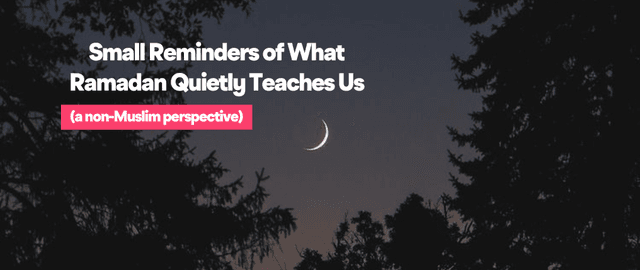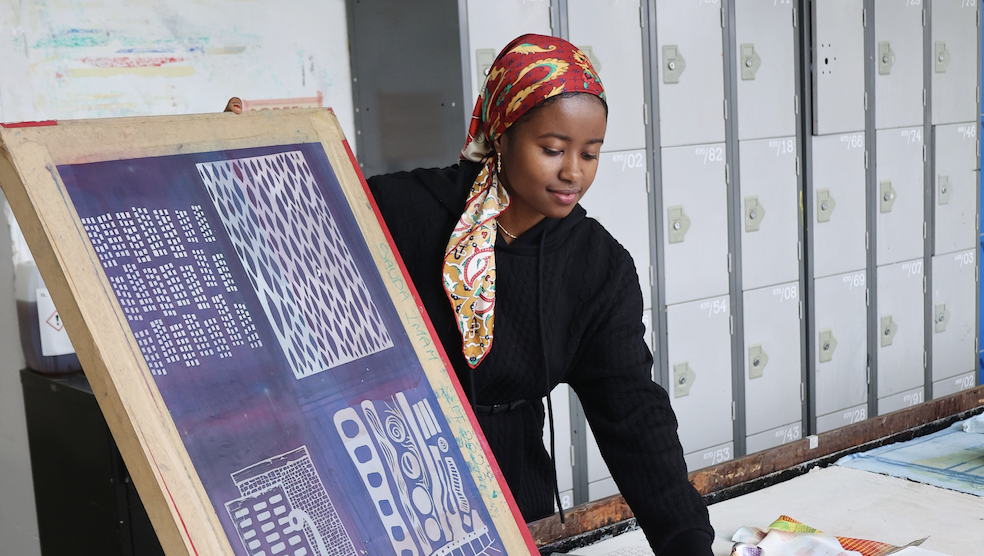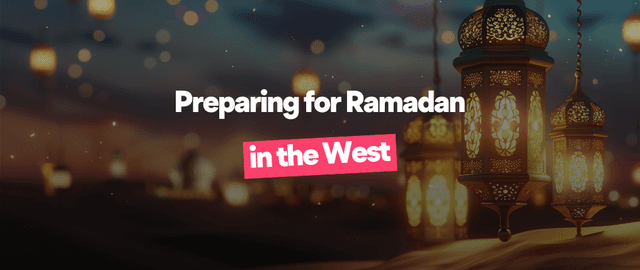
Expressing Faith and Identity in Love: London Fashion Week 2025
September 17, 2025

We spoke with Sauda Husna Imam during London Fashion Week 2025, to unpack how fashion and culture influence the way Muslims view love, relationships and marriages today. Sauda is a multidisciplinary designer and Royal College of Arts graduate who specialises in bridal wear, printmaking and handwoven textiles, with her design practice sitting at the intersection of fashion and interior. She weaves narratives of cultural heritage and contemporary design, being both a storyteller and proud British Nigerian creative.
How do you see Islamic values around modesty influencing how Muslims express attraction and identity in relationships today?


Looking for your soulmate?
You won’t find your soulmate on this blog post but you might find them on Muzz - the world’s biggest Muslim dating and marriage app.
When I think about faith and fashion, I’m reminded of my mother’s wedding outfits in the 90s. Many of the styles she chose were the West African Boubou. The Boubou aligned perfectly with modesty and cultural identity. What I find powerful is how the style both conceals and reveals: it allowed brides to embody Islamic values of modesty while still being elegant and fashion-forward.
For Muslim women, fashion has always been more than aesthetics – it’s a way to negotiate faith, culture, and self-expression. In relationships, modest fashion can be deeply alluring. Attraction isn’t erased by modesty; it’s reshaped. It shifts from revealing everything to leaving something to the imagination, which makes it more intentional, dignified and layered.
For Muslims balancing both Western and Islamic identities, how does fashion become a bridge (or barrier) when it comes to finding a partner?
This has always been the heart of my own journey. I see myself as a cultural hybrid: Nigerian, British, and Muslim. It’s a beautiful thing to draw from all these different parts of yourself. My grandmother, for instance, was the wife of a diplomat. She moved across the world, yet her one constant was fashion. It was her way of carrying ‘home’ with her, wherever she went. For me, that’s what fashion does: it becomes the bridge that allows Muslims balancing Western and Islamic identities to show who they are.
When it comes to finding a partner, that bridge can be powerful. Fashion communicates values instantly – someone may see your style and recognise the balance you’re striking between faith and modernity. It can attract a partner who appreciates that duality. But it can also be a barrier when it’s misinterpreted: abayas may be seen as ‘too traditional,’ while Western-leaning styles as ‘too liberal.’ In reality, fashion is one of the ways Muslims express nuance in identity. The right partner will see that as a celebration of who you are.
Do you think seeing modest fashion on mainstream platforms has changed how Muslims view themselves as ‘desirable’ in love?
Representation matters so much. Growing up, I didn’t see modest fashion in the mainstream. In fact, I felt the opposite – restriction. My mum would make me wear long sleeves under t-shirts, my dad was the family fashion police, and in northern Nigeria where I grew up, the society was very traditional. There weren’t any modest fashion ‘girlies’ online to look up to because the influencer space didn’t even exist then. Because of that, it was easy to feel like modesty and desirability couldn’t coexist. But now, seeing modest fashion celebrated on global platforms completely changes the narrative. It shows young Muslims that you don’t have to compromise your faith to feel beautiful, stylish or desirable. The next generation can be themselves fully, without editing out parts of their identity to be loved.
In your experience, how does embracing faith-inspired fashion challenge the stereotypes non-Muslims (and sometimes Muslims) have about love and relationships in our communities?
Faith-inspired fashion often gets boxed into stereotypes – that it’s oppressive, outdated, or somehow incompatible with romance. In western media, we’ve all seen the trope: a hijabi character finally gets a love interest, and the first thing that happens is the hijab comes off. As if faith and love can’t exist side by side. That narrative is so limiting and it tells young Muslims that desirability requires compromise.
My experience has been the opposite. Embracing modest fashion has shown me how much strength and confidence there is in expressing identity through faith. For non-Muslims, seeing modest fashion worn unapologetically challenges the idea that Muslim women are voiceless in relationships. And for Muslims, it pushes back against the belief that you have to water down your faith to be seen as modern or desirable. The truth is, modesty and love aren’t at odds. They can and always have, gone hand in hand.
Can fashion empower Muslims to feel authentic in their faith and culture while still being open to love in a modern context?
For me, living in London as a Nigerian Muslim has been a huge part of this journey. At first, I felt weird standing out – my clothes, my faith, my culture. Over time I decided to lean into it rather than shy away. I went on a journey of unapologetic growth, embracing all of it and that gave me a confidence people actually found attractive.
Ironically, it was living in the West that made me appreciate my Muslim and Nigerian identities even more. Fashion became the way I expressed that – blending modesty with individuality, tradition with modernity. It allowed me to show up fully as myself, and I think that’s what makes you open to love in a modern context. When you’re authentic, you invite the kind of love that sees you for who you really are.
How do you see young Muslims negotiating between cultural wedding traditions, Islamic values, and modern fashion aesthetics when it comes to love and marriage?
I see many young Muslims wanting to honour tradition, stay true to Islamic values, and still feel in the times. Weddings really capture this push and pull. On one hand, there are cultural expectations – the fabrics, the silhouettes, the ceremonies passed down through generations. On the other, there’s the influence of global fashion trends and social media, which set a completely different standard for beauty and style.
What I find inspiring is how creative young Muslims have become in merging the two. I call my Naija girlies ‘Afropolitan Brides’ – women of African heritage with a cosmopolitan identity, tied to multiple places and cultures, who confidently draw from both worlds. You’ll see brides wearing traditional textiles such as Adiré or Aso Oke in contemporary cuts. Even my mum celebrated her cultural hybridity at her wedding by wearing European lace sewn into a Boubou style. It’s not about choosing one over the other, but about merging faith and culture to create an authentic style. For me, that’s what love and marriage are really about: finding harmony between values, heritage, and self-expression.
Nigerian weddings are famous for being big, bold, and beautifully styled. How has that influenced the way you see fashion’s role in love and marriage?
The fabrics at Nigerian weddings all carry meaning. They communicate your tribe, your family’s story, and your place in the celebration. The colours are intentional, chosen to symbolise joy, unity, or heritage. Even the guests wear aso ebi (matching fabrics) to show belonging – one side for the bride, one side for the groom. It honours the past while marking the beginning of the couple’s future. Growing up around that shaped how I see fashion’s role in love and marriage. Everything is intentional. It’s never just about aesthetics; it’s about using cloth to tell a story of identity, love, and community.
Nigerian fashion is so tied to identity. How do you carry that cultural pride into how you think about Muslim relationships in the West?
For Nigerians, fashion is identity. Our ancestors wore cloth that told tales of where they came from before they even spoke. Growing up with that taught me that what you wear isn’t just surface; it’s tied to belonging and legacy. Carrying that into my life in the West has shaped how I think about Muslim relationships here. It’s reminded me that you don’t have to water yourself down to be accepted or loved.
In fact, the more I leaned into my Nigerian and Muslim identities, the more confident I became – and that confidence is attractive in itself. Fashion became the tool that helped me merge those layers, blending faith, culture, and individuality. For me, it’s proof that you can be fully yourself (Nigerian, Muslim, Western) and the right partner will see the beauty in loving all those parts of you.
Nigerian culture celebrates colour, community, and tradition in weddings. How has that shaped your own ideas of what a Muslim marriage should look and feel like?
I’ve always felt like Nigerian weddings are more culture than faith – a lot of the aspects are tied to tradition rather than religion. But to me, that’s what makes Muslim marriage so beautiful: it’s accommodating. It doesn’t matter where you come from, your culture can sit alongside your faith. At the end of the day, it’s about love, family, legacy, and belonging.
Growing up around big Nigerian weddings showed me that while the details might look different across cultures, the essence is the same. Muslim marriage makes space for that diversity while grounding it in shared values. That’s what makes it so universal.
What’s one piece of advice you’d give Muslims about staying authentic to their faith and culture when presenting themselves to search for a partner?
My advice would be to stay true to who you are. Don’t present a watered-down version of yourself just to seem more desirable. Your faith and culture are not barriers – they’re a bridge. When you carry yourself with that clarity, you invite the kind of love that feels like home. The right partner won’t just love fragments of you, they’ll love every piece, because together those pieces are what make you whole.

